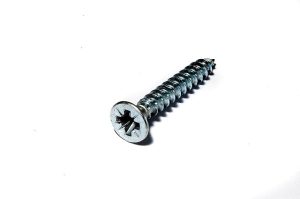
You can’t ignore the thread type when choosing fasteners. Fasteners like screws and bolts have external threads. External threads are helical ridges on the outside of a fastener. They feature a spiral-like design that wraps around the fastener’s shank. While some fasteners have coarse threads, though, others have fine threads.
Coarse vs Fine Threads Explained
The threads on fasteners can be categorized as either coarse or fine depending on size. Coarse threads are wide, whereas fine threads are narrow. Coarse threads are also typically deeper than fine threads.
Fasteners with coarse threads have fewer ridges than those with fine threads. Coarse threads are wider than fine threads, so they take up more space. As a result, fasteners with coarse threads have fewer, albeit larger, ridges than fasteners with fine threads.
You can refer to a fastener’s label to determine whether it has coarse or fine threads. UNC fasteners typically have coarse thread, whereas UNF fasteners have fine thread.
Benefits of Fasteners With Coarse Threads
Fasteners with coarse threads are typically stronger and more durable than those with fine threads. You can use them in hard materials. With their wide and deep threads, they won’t break. Fasteners with coarse threads are incredibly strong and durable.
If you’re worried about cross-threading, you may want to choose fasteners with coarse threads. Cross-threading is a phenomenon in which the exterior threads of a fastener fail to mate correctly with the interior threads of a separate fastener. It can occur with bolts and nuts, for instance. The exterior threads of a bolt may not align properly with the interior threads of the nut
Benefits of Fasteners With Fine Threads
Fasteners with fine threads, on the other hand, allow for greater precision regarding tightening. You can tighten them more precisely thanks to their narrow, shallow threads.
Another benefit of using fasteners with fine threads is a stronger hold. Fasteners are used to secure two or more parts together. Fasteners with fine threads offer a stronger hold because they cover more surface area. Fine threads aren’t as deep as coarse threads. Nonetheless, they include more helical ridges, so they cover more surface area when installed.
In Conclusion
Some fasteners have coarse threads, whereas others have fine threads. With coarse thread, fasteners are durable and better protected against cross-threading. With fine threads, fasteners offer greater precision and a stronger hold with the parts with which they are used.
